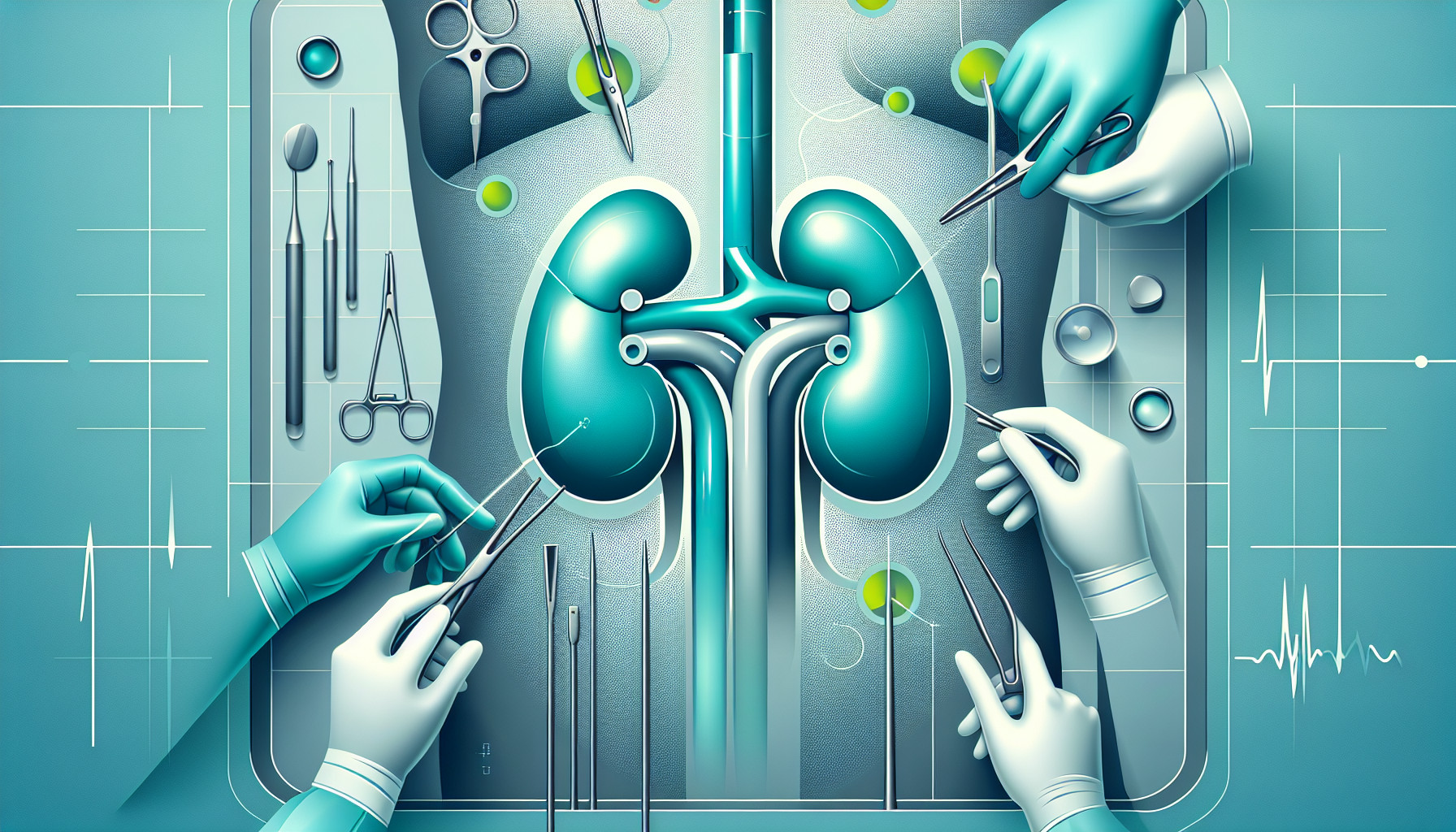Our Summary
This research paper discusses a major issue with kidney transplants - chronic antibody-mediated rejection. This happens when the body’s immune system makes antibodies specifically to reject the new kidney. Over time, these antibodies can increase and cause damage to the transplanted kidney through a process called complement activation. This process can cause inflammation and damage to the kidney, which can make it stop working properly. Currently, there is no established treatment for this problem once it becomes irreversible, so it’s important to detect and treat it early. The paper also reviews current treatment options and recent ways to detect this issue at an earlier stage.
FAQs
- What is chronic antibody-mediated rejection in kidney transplants?
- What is the process of complement activation and how does it harm the transplanted kidney?
- What are the current treatment options and recent methods to detect chronic antibody-mediated rejection at an early stage?
Doctor’s Tip
A doctor might advise a patient undergoing a kidney transplant to closely follow their medication regimen, attend all follow-up appointments, and report any changes in their health status immediately. It is also important for the patient to maintain a healthy lifestyle, including eating a balanced diet, exercising regularly, and avoiding smoking and excessive alcohol consumption. Additionally, patients should be aware of the signs and symptoms of rejection, such as swelling, pain, fever, and changes in urine output, and seek medical attention promptly if they experience any of these symptoms. By staying vigilant and proactive in their care, patients can help ensure the long-term success of their kidney transplant.
Suitable For
Patients who are typically recommended for a kidney transplant are those with end-stage renal disease (ESRD) who are not able to maintain a good quality of life with dialysis alone. This includes patients with conditions such as diabetes, high blood pressure, autoimmune diseases, and genetic disorders that have led to kidney failure. Additionally, patients who have a high likelihood of success with a kidney transplant, such as those who are relatively young, otherwise healthy, and have a good support system in place, are also recommended for transplantation.
It is important for patients to undergo a thorough evaluation by a transplant team, which includes medical, surgical, and psychosocial assessments, to determine if they are suitable candidates for a kidney transplant. Patients must also be willing and able to adhere to a strict medication regimen and follow-up care after the transplant to ensure the success of the procedure.
Overall, kidney transplantation is considered the best treatment option for many patients with ESRD, as it can improve quality of life and increase life expectancy compared to long-term dialysis. However, it is important for patients to be aware of the potential risks and complications associated with transplantation, such as chronic antibody-mediated rejection, and to work closely with their healthcare team to monitor and manage these issues effectively.
Timeline
Before kidney transplant:
- Diagnosis of end-stage renal disease and referral to a transplant center
- Evaluation by a transplant team to determine eligibility for transplant
- Placement on the transplant waiting list and waiting for a suitable donor
- Pre-transplant testing and preparation for surgery
- Surgery to remove the diseased kidney and transplant the new kidney
After kidney transplant:
- Recovery period in the hospital to monitor for any complications
- Introduction of immunosuppressive medications to prevent rejection of the new kidney
- Regular follow-up appointments to monitor kidney function and adjust medications
- Lifestyle changes to maintain the health of the transplanted kidney
- Potential complications such as rejection episodes, infections, and side effects from medications
- Long-term monitoring for signs of chronic antibody-mediated rejection and other complications
- Potential need for additional treatments or a second transplant if the transplanted kidney fails
Overall, the timeline for a patient undergoing a kidney transplant involves a series of steps before and after the surgery to ensure the best possible outcome and long-term success of the transplant.
What to Ask Your Doctor
What are the risks and benefits of receiving a kidney transplant?
How long is the waitlist for a kidney transplant and what factors determine how quickly a patient can receive a transplant?
What is the success rate of kidney transplants at this facility?
What is the recovery process like after a kidney transplant and what kind of support will be available during this time?
What are the potential complications or side effects that may arise after a kidney transplant?
How will the patient’s lifestyle need to change after receiving a kidney transplant?
How often will the patient need to follow up with their doctor after the transplant?
What medications will the patient need to take after the transplant and what are the potential side effects of these medications?
How will the patient’s diet need to change after receiving a kidney transplant?
What are the signs and symptoms of chronic antibody-mediated rejection and how can it be detected and treated early?
Reference
Authors: Sasaki H, Tanabe T, Tsuji T, Hotta K. Journal: Int J Urol. 2023 Aug;30(8):624-633. doi: 10.1111/iju.15197. Epub 2023 Jun 12. PMID: 37306194
